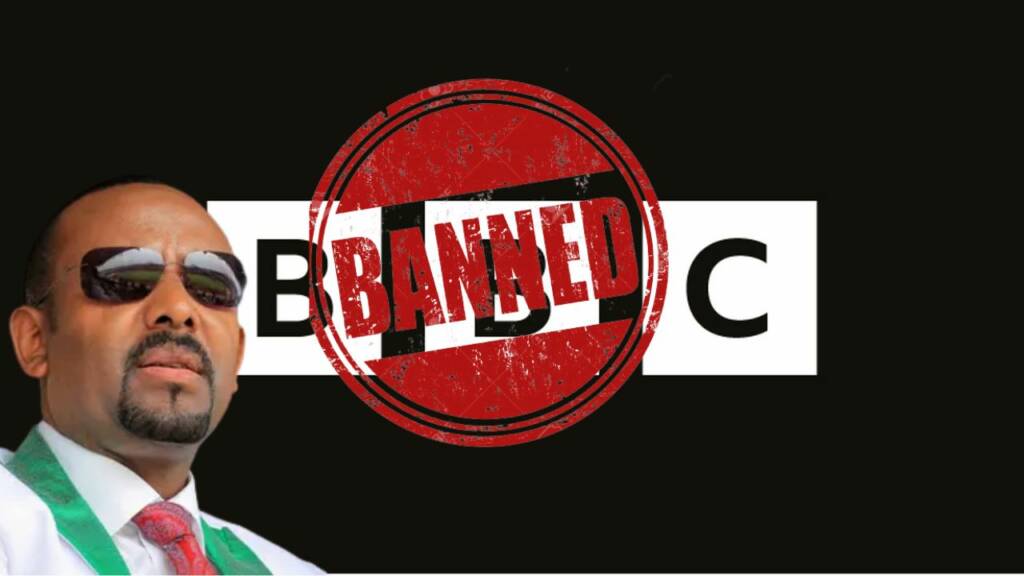Media if utilized correctly has the sole power to control the people and set the agenda of the nation. However, sometimes, this same media turns out to be the biggest problem of society with misleading, or one-sided reports. Several media houses have often been chastised for inciting hate and propaganda against one specific nation. Nowadays, BBC is landing in such troubles across the globe. In India, too, BBC is getting rebuked for peddling half-baked information. In the similar context, BBC has got kicked out by Ethiopia, and that too in a really insulting manner.
In Ethiopia, 15 media organizations, including the BBC i.e. British Broadcasting Corporation and the Voice of America (VOA), have got expelled by Ethiopian authorities from its Somali region for operating without the required licenses. Reportedly, Somali Regional State Communications Bureau has passed a decision to take 15 foreign media outlets broadcasting in the region off the air and accused reporters of the outlets based in the region, including the BBC Somali service, of working without licenses.
Following a letter of complaints from the Ethiopian Media Authority (EMA) to the regional officials, which claimed that the international media organization representatives based in the region are working without the necessary accreditations, the authorities decided to expel the media organizations.
A big development
Now, this is a really big development as Ethiopia has legitimately suspended operation of BBC near Somali borders on the accusations that they are publishing misleading reports and fueling the crisis. No doubt, this decision is going to leave UK and several European authorities in unrest.
Somaliland considers itself an autonomous region. But many countries including Ethiopia reject these claims. Furthermore, for the west, this unstable region smells like money. Three years ago, the United Kingdom, Denmark, and the Netherlands approved four agreements with the government of Somaliland to improve critical infrastructure to support economic growth, thereby undermining the sovereignty of Somalia.
Additionally, in December, Somalia rejected British Company Genel Energy’s “illegal claim” to oil exploration and exploitation rights in Somaliland citing it as an attack on sovereignty. And guess what happened next? 20 people got killed in Somalia’s breakaway region of Somaliland in clashes between anti-government protesters and security forces. Protestors demanded seizing control of Puntland, that is one of Somalia’s semi-autonomous regions.
Post the violent clashes, the powerful government of the semi-autonomous state of Puntland announced in a statement, that it is now acting as an “independent government.” This all pushed Somalia into a troubling situation.
Read More: Biden adds fuel to the fire in Somaliland issue
The role of BBC
The whole Horn of Africa became a hot mess, and in this, media outlets like BBC and VOA also played an undoubtedly bigger role. The broadcasting company has been known for peddling fake news in Africa and have received severe backlash for the same.
For instance, in 2019, the government of Burundi banned the BBC from publishing news after the broadcaster reported on allegations of secret government-run torture sites being used to silence dissent. The government denied the report, labeling it as “fake news.”
The ban was announced just two weeks before the constitutional referendum as the report had the power to meddle in the elections. Similarly, Rwanda, Cameroon and even the DRC have followed suit by banning media outlets like BBC for spreading false propaganda that eventually create more unrest in already unstable Africa.
Considering the scenario, Ethiopia’s actions indicate that it wants to keep its guard given that Somaliland and Puntland are bordering Ethiopia and inappropriate media reports could have a spill-over effect in Ethiopia. Furthermore, it wont be wrong to say that the country is no more in a mood to experience TPLF-like crisis on its land again and in that quest it wont fear in throwing out such propogandist media outlets.
https://www.youtube.com/watch?v=kfM46xFOv60
